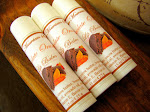 In 1993, an outbreak occurred at the cancer ward of the University Hospital in Basel, Switzerland. Almost half of the patients tested were found to be infected or colonized with the Paecilomyces lilacinus fungus. Nine of the patients had skin eruptions due to the infections. In one patient, the infection spread to the kidneys. Two patients died.
In 1993, an outbreak occurred at the cancer ward of the University Hospital in Basel, Switzerland. Almost half of the patients tested were found to be infected or colonized with the Paecilomyces lilacinus fungus. Nine of the patients had skin eruptions due to the infections. In one patient, the infection spread to the kidneys. Two patients died.And how did the patients become infected? According to the Annals of Internal Medicine (published by the American College of Physicians), "The outbreak was ultimately traced to a contaminated, commercially available, pharmaceutically prepared skin lotion." The outbreak ended after the skin lotion was recalled.
As a maker of bath and body products, I have a very, very healthy respect for bacteria, germs and fungus. I do not want them anywhere near my products.
 And yet, as a consumer - and as a mother - I want to make and use products that are as natural as possible. After all, this is one of the main reasons I make these products, to get away from the synthetic, petroleum-based, chemical-laden junk on store shelves. So the question is, how "natural" is safe? Which is better, "all-natural" or "natural but with preservatives?"
And yet, as a consumer - and as a mother - I want to make and use products that are as natural as possible. After all, this is one of the main reasons I make these products, to get away from the synthetic, petroleum-based, chemical-laden junk on store shelves. So the question is, how "natural" is safe? Which is better, "all-natural" or "natural but with preservatives?"For me, after several years of studying preservatives and the nasty little bugs they are designed to kill, the answer is simple. The preservatives win, hands down. They may not be "natural," but not everything "natural" is good. Mold is natural, and so is E. Coli bacteria. Death is "natural."
I cringe every time I see "all-natural" lotions and creams listed for sale being touted as "chemical-free," with no preservatives listed in their ingredients. It is literally impossible to prevent the inclusion of some germs and bacteria into a product, unless you make it in an autoclave. Even the best good manufacturing practices only call for a work area to be sanitary, not sterilized. And water - a necessary ingredient in products like lotion and cream - creates the ideal breeding ground for bacteria, fungus and mold.
Now, some people truly believe that Vitamin E or grapefruit seed extract serve as natural preservatives. They are dead wrong. Both are antioxidants, not antibacterial or anti-fungal agents. In other words, they are great for keeping the oils in the products from going rancid as quickly (oxidizing). They do nothing to kill or prevent the growth of the kinds of nasties that can literally eat your skin off.

Any doctor will tell you that the majority of bacterial skin infections are caused by the gram-positive bacteria Staphylococcus and Streptococcus species. In 1997, after a c-section, I developed a hemotoma that became infected with MRSA - a medically-resistant staphylococcus (staph) infection - and it almost killed me. I spent a week in the hospital in a semi-conscious state as specialists shook their heads over me. I know gram-positive bacteria. They are not friends of mine.
So, given a choice between bacteria and chemicals, I go with chemicals. Fortunately there are some good preservatives that are free of parabens and formaldehyde, which are possible carcinogens and some of the things people looking for "natural" products tend to want to avoid. One of those preservatives is Optiphen, which we use in most of our products requiring a preservative. We even use it in our body butters and balms, even though they do not contain water, because people usually scoop those with their fingers.
Our advice? Run, don't walk, away from products that don't contain a preservative. Because if the pros can't manage to keep their products uncontaminated (just last summer, the FDA announced the recall of skin sanitizers and lotions marketed by Clarcon Biological Chemistry Lab), how can the little guys manage it?






2 comments:
Hi and thank you for posting this story, especially sharing your experience with MSRA. You mentioned one preservative you work with, do you have any others that you like as well?
Christina,
Thank you for this information. Like so many people, I was running along thinking that all perservatives were bad, and you have provided some very helpful information on the benefits and cleared up some of the misinformation that I had fallen into believing.
Post a Comment